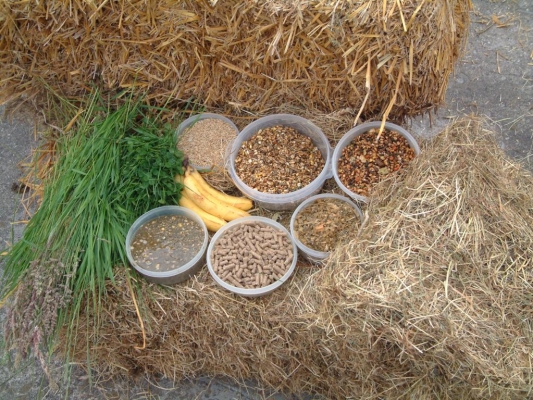Nutrients
A variety of building blocks in the horse feed contribute to the health of your horse. Roughage and concentrates contain nutrients that supply energy and take care of the recovery and growth of the body.
Roughage consists of carbohydrates, water, fibers, sugars, protein and vitamins and minerals, to name a few. Concentrates also contain starches and vegetable fats.
What are these nutrients doing for your horse?
Carbohydrates
We can distinguish complex and water-soluble carbohydrates.
Soluble carbohydrates are sugars and starches, and these are broken down by enzymes in the stomach and small intestine, which supplies a great deal of energy for the horse.
“It is important that the break-down of soluble carbohydrates happens adequately, because otherwise sugars and starches that could disturb the intestinal flora will end up in the large intestine, which increases the risk of wind colic and founder.”
The longer grass grows, the richer in fiber it will get. High-fiber, complex carbohydrates can only be dissolved into useful nutrients in the large intestine of the horse. Bacteria take care of this process.
Without sufficient fibers the digestion of the horse doesn’t function. If the large intestine of the horse doesn’t function properly, there is a risk of various digestive disorders and other illnesses such as colic or founder.
Proteins
Proteins are broken down to amino acids in the entire digestive tract, but only the small intestine absorbs the amino acids well. These amino acids are essential building blocks for a first-rate function of the body. A horse uses these amino acids to grow and as a substitution for body protein.
A horse can also produce certain amino acids by him self. So not all amino acids are essential and have to be provided in the daily ration. Too much protein is no problem for a healthy horse. The kidneys will remove the excess proteins through the urine. Growing horses, pregnant and lactating mares have a higher need for proteins.
Vegetable fats
A horse can dissolve and absorb vegetable oils in the body very well. This happens mainly in the stomach and the small intestine. Vegetable fats supply a great deal of energy, which makes these vegetable fats extremely beneficial for horses on lengthy and demanding work schedules. Fats also provide a shiny coat, proper digestion and supple muscles and joints. Your horse will need a few weeks before he can start profiting from more fats in his diet. That is why it is important to carefully and gradually increase the amount of fats.
Vitamins and minerals
Vitamins and minerals have an important function in the body of the horse. Minerals are necessary for such matters as bone growth, muscle development, absorption of water and other matters and the function of enzymes, hormones and vitamins are necessary for a good immune system and the removal of waste matters from the body.



